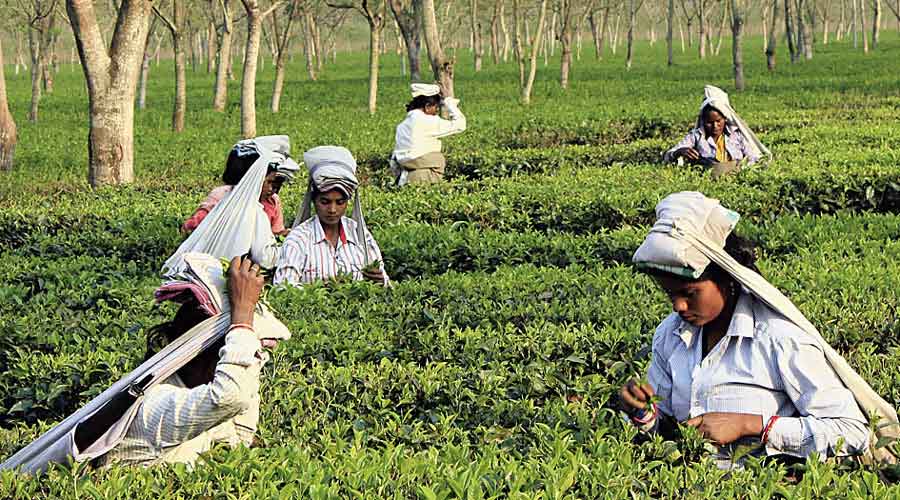An association of tea planters in north Bengal has sent a letter to the Tea Board of India on the sector’s plight as subsidy to the tune of Rs 400 crore that has been held up for “years”.
“For the past few years, the Tea Board has stopped disbursing subsidies to tea estates of our region. Time and again, we have tried to draw the attention of the authorities but to no avail. According to our estimates, the gardens that have applied for subsidy will in all receive around Rs 400 crore. If the disbursement is delayed further, it would adversely affect the sustenance of a number of tea companies which have made major investments in their gardens,” said M.P. Bansal, the chairman of the Terai Indian Planters’ Association (Tipa).
The tea board normally pays subsidies to tea gardens to carry out certain activities such as replantation and rejuvenation of bushes, field mechanisation, as well as upgrade of factories and allied infrastructure associated with tea production.
“There have been some disbursements for the gardens in Assam. But the subsidy dues of the gardens in north Bengal still remain unpaid. The problem has been aggravated since 2014. We have highlighted this innumerable times. This is clear step-motherly treatment towards the tea estates of north Bengal by continuing with the disproportionate and inadequate fund allocation policy,” Bansal, who recently wrote to the Tea Board, said.
In several cases, where subsidy was sanctioned around 10 years, people are still waiting for them, the Tipa chairman added.
Tea planters have also said that after the 2017 political agitation in the Darjeeling hills that led to a 104-day-long strike, the tea sector had taken a beating. The Centre had announced a relief package of Rs 100 crore for the hill tea industry, but “nothing concrete has been witnessed yet”, said a planter in Siliguri.
He added: “The central government puts emphasis on Atmanirbhar Bharat but there is a steady rise in the import of teas in violation of the rules of the tea board and the FSSAI over the years. So far, no effective step has been witnessed to control such indiscriminate import.”
North Bengal produces over 400 million kilos of tea, around 30 per cent of the country’s total tea production.
A Tea Board official in Calcutta, when contacted, said they were aware of the situation. “Once we receive funds and approval from necessary quarters, subsidies would be disbursed according to rule,” he said.
The Tea Association of India (TAI), with member gardens in north Bengal and Assam, has sought a financial package from the Bengal government in the form of incentives on working capital loan and for capital expenditure.
“From January to June 2021, there is a shortfall of around 50 million kilos in production. We are not making enough money this year. On the other hand, from January this year, the daily wage
rate has increased to Rs 202 from Rs 176. In such a situation, a package from the state’s side can largely help the industry,” said Prabir Bhattacharjee, the secretary-general of TAI.










